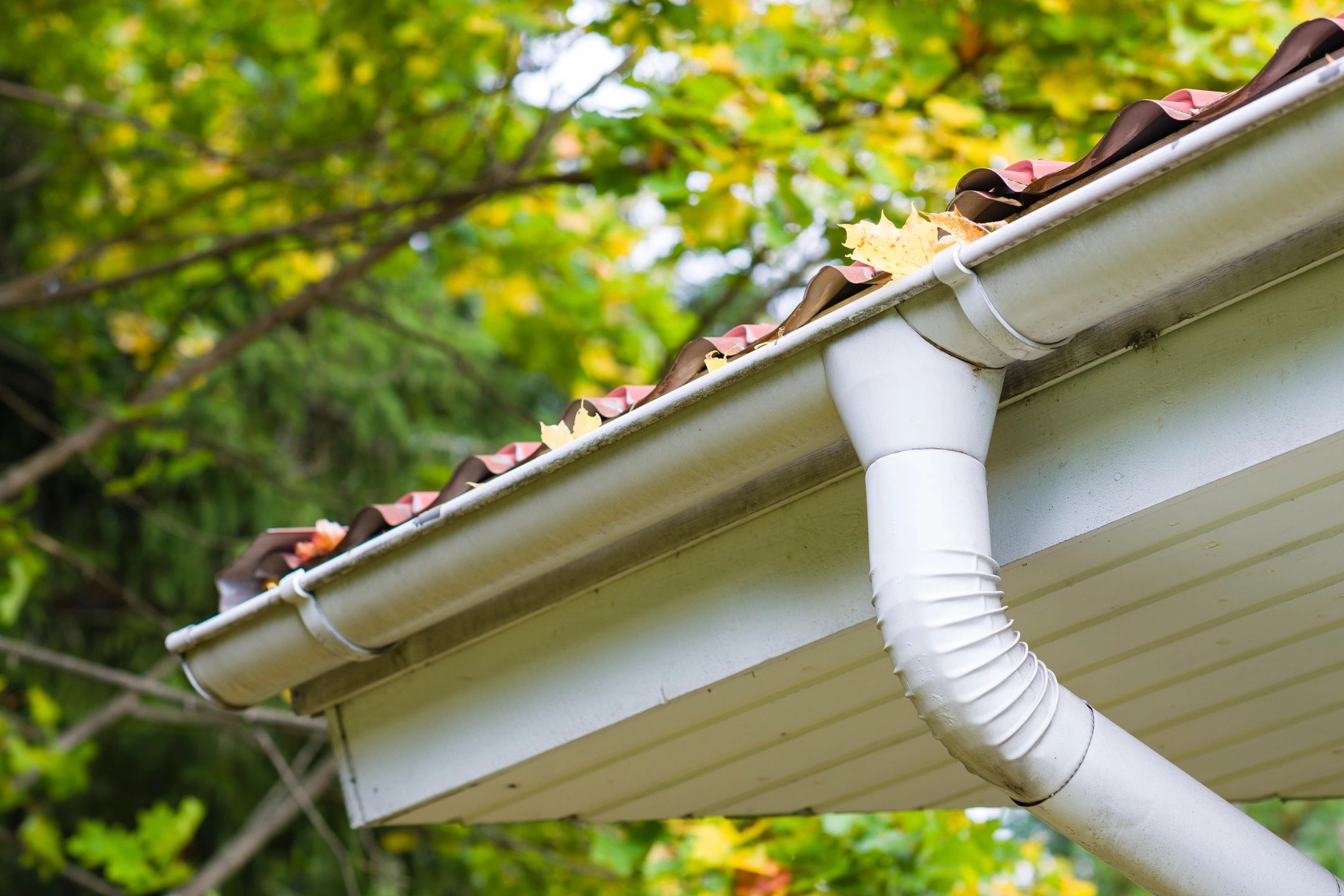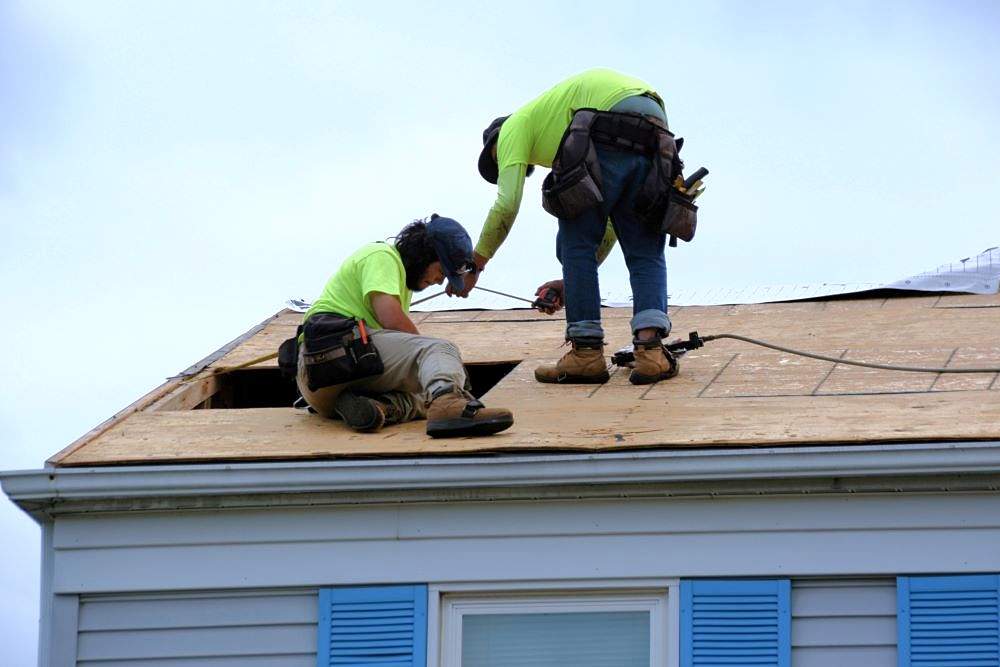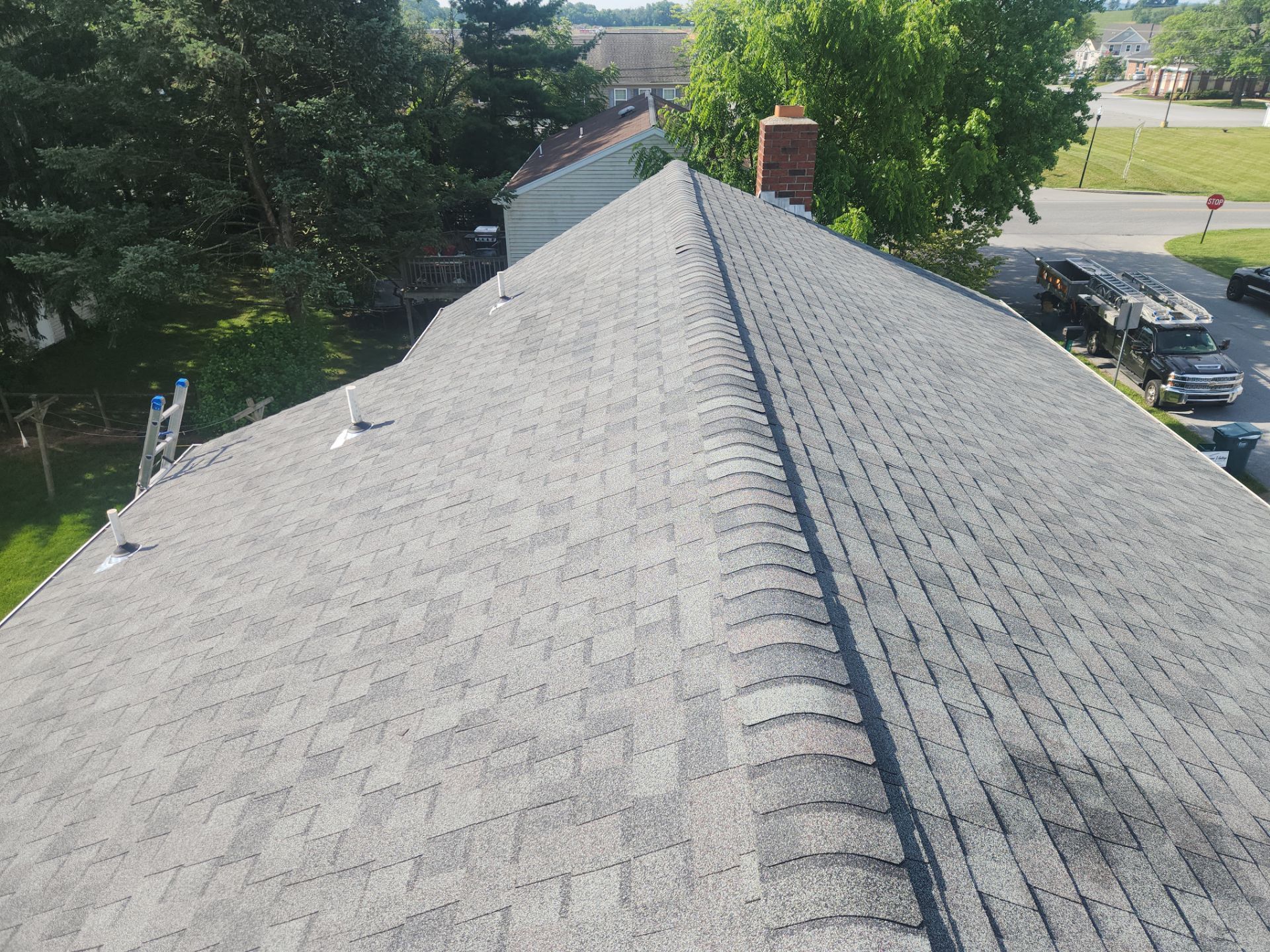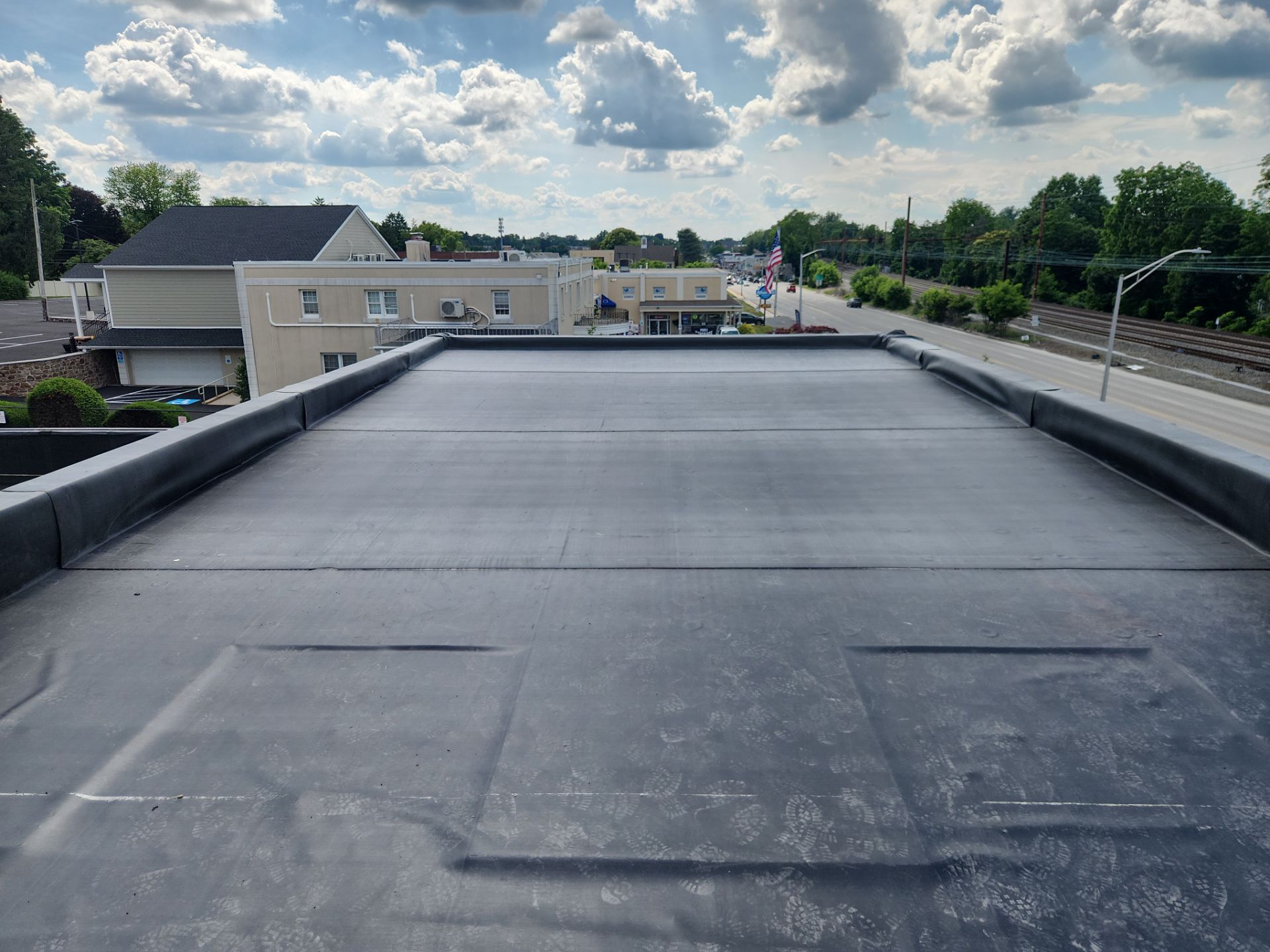Gutters defend your home by directing water away, preventing moisture-related issues that may lead to structural damage. Gutters can last 20 to 50 years or more — factors influencing gutter longevity include the material, installation method and maintenance.
Let’s look at how long gutters last and when you should consider repairing or replacing yours.
The Life Span of Gutters and How Long They Last
Your home’s gutters offer various benefits, including foundation stabilization and mitigating water damage. How long gutters last depends on different factors:
Material Type
Popular gutter materials include aluminum, copper, galvanized steel and vinyl. Each material has advantages and disadvantages. For example, copper is durable but can be more costly than aluminum. According to the International Association of Certified Home Inspectors® (InterNACHI), the life expectancy for gutters is as follows:
- Aluminum: From 20 to 40 years or more
- Copper: Over 50 years, with copper downspouts expected to last 100 years
- Galvanized steel: Up to 20 years
- Vinyl: Gutters and downspouts may last 25 or more years
A professional roofing contractor can recommend the best material for your home.
Gutter Style
Homeowners have a wide selection of gutter materials, but they generally come in just two different styles:
- Seamed: These regular or “sectional” gutters are short sections fastened by seams. Although seamed gutters may be more affordable, the risk of leaks is higher. Sealing the joints is necessary to guard against leaks. Joints wear over time and need regular maintenance and eventual replacement. Contractors build the ready-to-connect sections around the roof’s perimeter. Sectional gutters may not last as long as seamless due to multiple seams.
- Seamless: Seamless gutters only join at the roof corners and downspouts. This reduces the risk of leaks, as there are no gaps for water to seep through. Contractors custom-make seamless gutters to fit your home. Depending on the construction material, they are low-maintenance and rust-proof. The initial cost of seamless gutters is offset by a higher return due to minimal maintenance.
When choosing your gutter style, consider your budget, aesthetic and how much you’re willing to invest in maintenance. Asking for advice from a reputable contractor can save you money in the long term.
When to Replace Your Gutters
With the proper installation and care, gutters protect your home for many years. Even the most well-maintained gutters wear over time and need replacement.
Signs of Gutter Damage
How will you know whether repair is an option or if it’s time to replace your gutter? Look out for these common signs of gutter damage:
- Sagging or warping: When your gutters pull away from the roof, it indicates poor draining. Replacement is the best option for sagging gutters.
- Seam breaks: The join where gutter sections meet creates a watertight seal. Loose or broken seals lead to separation and damage. Depending on the severity of the damage, you may be able to repair the seals.
- Cracks: Gutter materials can crack over time, disturbing water flow. You can repair minor cracks, but larger or many cracks may require a new gutter.
- Peeling paint: The paint used around gutters is weatherproof, so peeling signifies water damage. Take notice of bubbling or flaking paint, which may cause rust. Rust leads to degeneration and leaks.
- Water damage: Rotting wood, vinyl siding staining or spots around the gutter indicate damage. If left unchecked, this damage can compromise your home’s structural integrity.
- Pooling water: Water may not flow as intended through damaged gutters. Overflowing water can seep into the building’s foundation, causing flooding or damage.
- Loose fasteners: Missing nails and fasteners affect gutter support. Look for metal or screws below or around the drainage system.
- Unpleasant smell: If you smell an odor from your gutters, it could be stagnant water or rotting debris.
Benefits of New Gutters
Replacing your gutters has many advantages:
- Reduces the chance of roof and siding degradation
- Protects foundation and landscaping
- Prevents basement flooding
- Safeguards your home’s structural integrity
- Deters mold growth and pest infestation
- Increases curb appeal and enhances property value
- Longer life expectancy and warranty protection
When installed by a reputable contractor, your new gutter system will defend your home for decades. Choosing the right gutter material and keeping it well-maintained ensures longevity.




